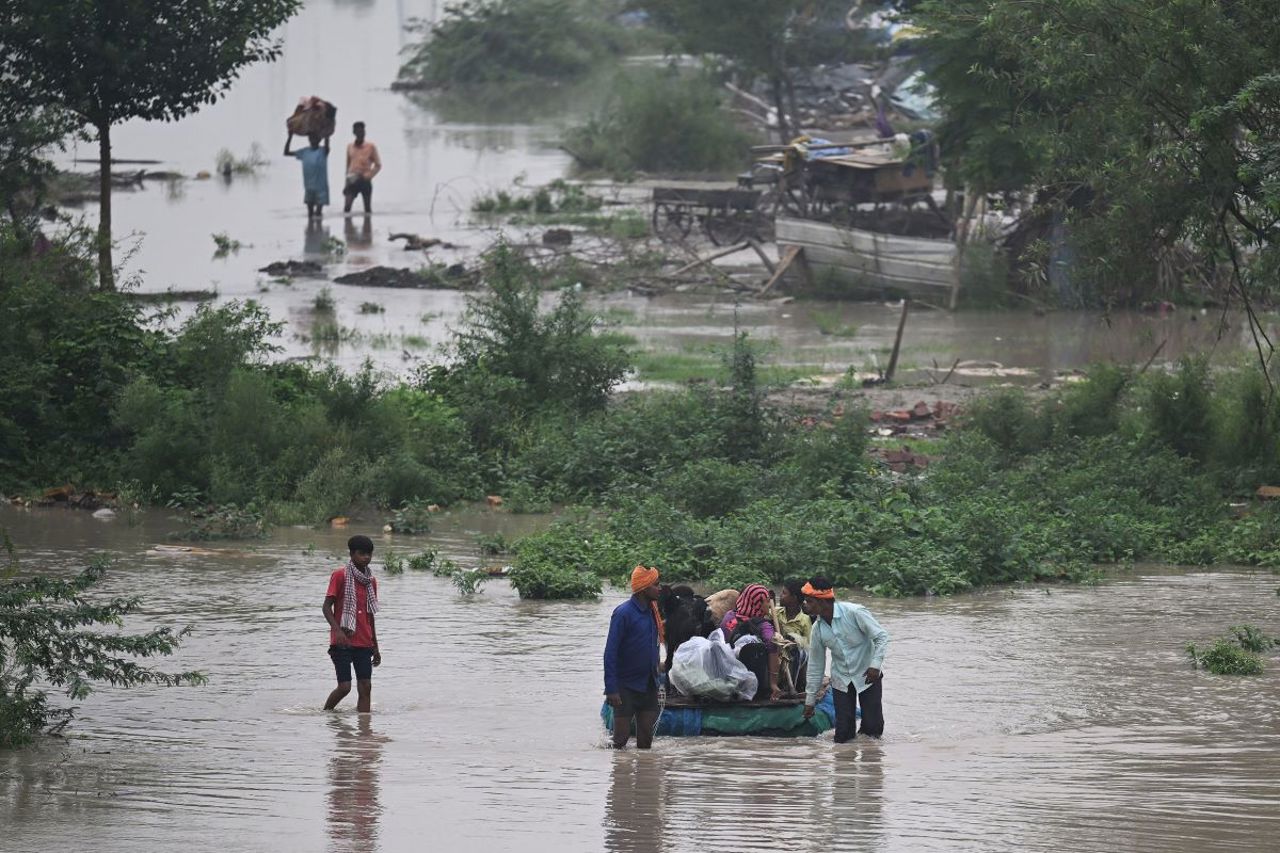G20 leaders to discuss climate change as India reels from floods
In the wake of devastating floods in India, leaders of the Group of 20 major economies will meet in New Delhi on Saturday and Sunday to discuss climate change.

Hundreds of people have been forced to flee their homes in India after record monsoon rains caused widespread flooding in July. Many are still living in makeshift tents under the open sky.
“The water was so high, we couldn’t take anything,” said one resident. “My husband’s tools, my children’s school uniforms, books, clothes, blankets, mattresses, everything is gone. If the leaders come and help us, it would be great. Our homes are flooded.”
The heavy rains also destroyed tens of hectares of farmland, leaving farmers in need of government assistance.
“I am a farmer and I have several acres of land,” said another resident. “All my crops are gone. I have suffered huge losses. My newly purchased farm equipment, worth 500,000 rupees, or about $6,000, was also destroyed by the floodwaters.”
According to government reports, more than three-quarters of India’s electricity is generated from fossil fuels, including coal. Environmental experts are hoping that G20 leaders can set aside political differences and reach a concrete agreement on renewable energy.
“My hope for the leaders’ summit is that the leaders have a mandate to come up with some kind of ambitious agenda and leave aside political differences, especially under the leadership of the prime minister, who has been a strong supporter of renewables,” said Madhura Joshi, an environmental expert. “I hope to see a stronger statement than the G20 Energy Communique on supporting G20 countries to triple global renewable energy capacity.”
Climate change is one of the greatest threats to the environment, social framework, and economy. Over the past 150 years, the global average temperature has risen by nearly 0.8ºC overall and by about 1ºC in Europe. Experts expect global temperatures to rise by 1.8 to 4.0ºC by 2100.
Translation by Iurie Tataru





